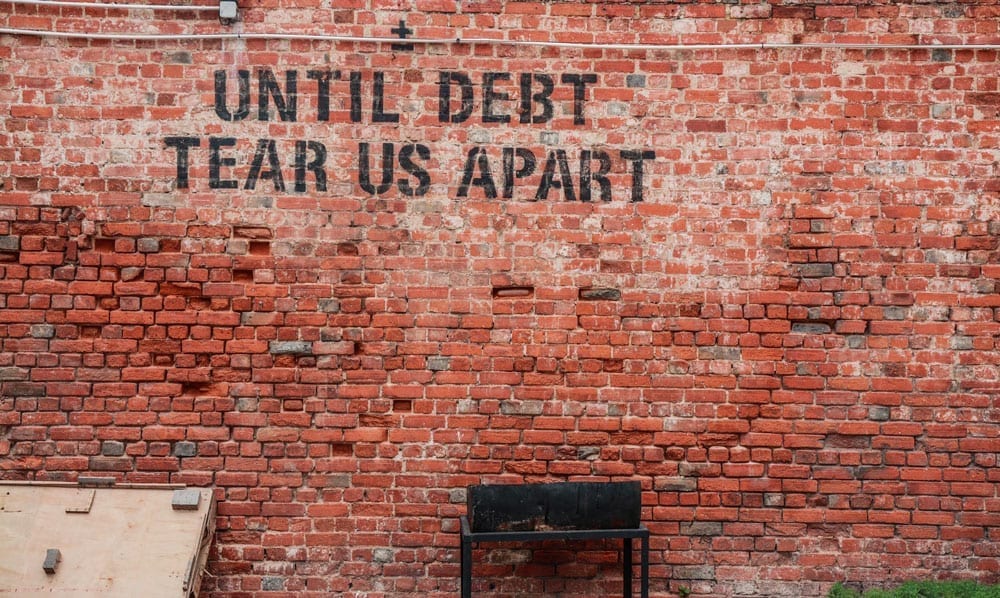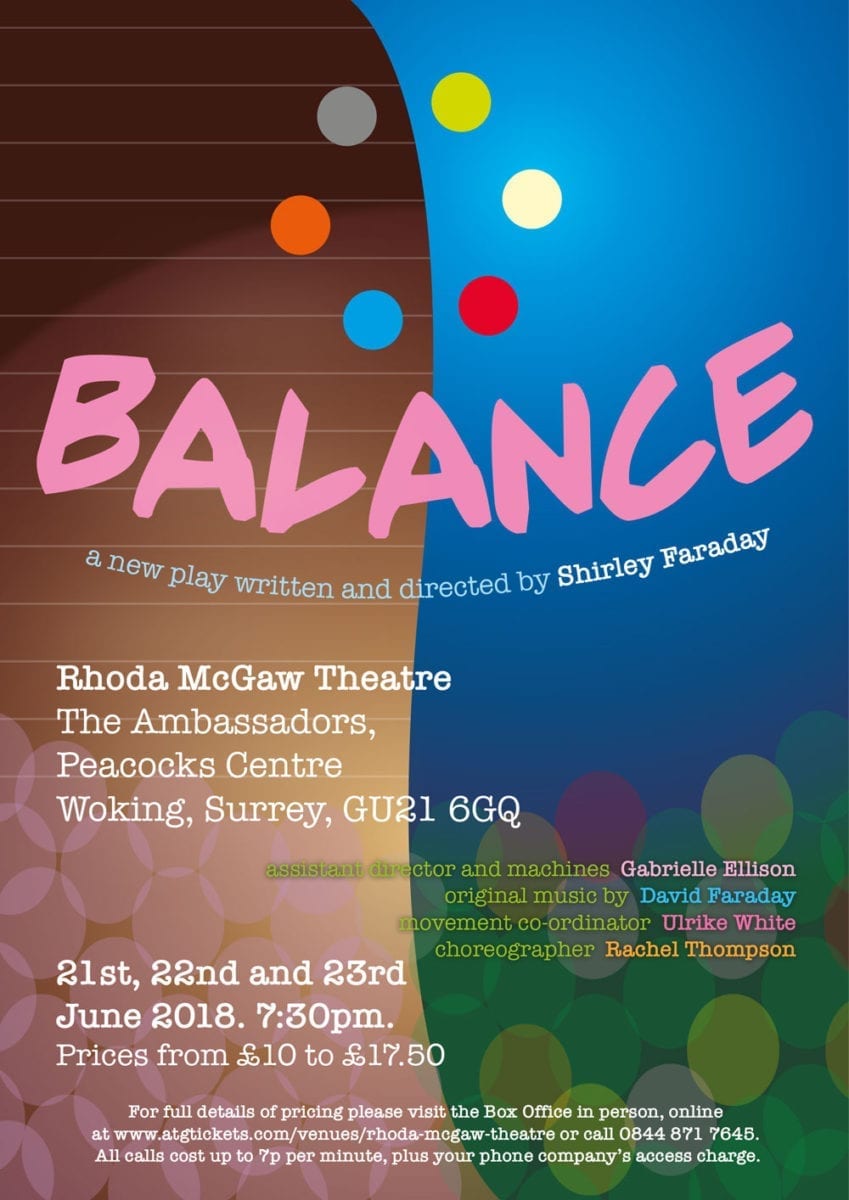Can a play start a conversation and generate multi-disciplinary projects?
Few people understand how money works, and yet it has a vital part in our lives. In her new theatre play ‘Balance’, former Positive Money consultant Shirley Wardell tries to address this issue by making the topic relevant to people who watch the play — and to those who act in it.

At a month before my play ‘Balance’ is performed in Woking, it is easy for me to forget why I wrote the play in the first place. The stress levels and demands on me remind me to ground myself in my original objective: attracting a more diverse audience into the conversation about how banking works.
Did that require me to write, direct and produce a play? There are many other things that could be done, such as workshops similar to the RSA’s citizens’ economic council which is working the theme with diverse champions and inspiringly clear, thought-provoking resources.
In 2014, when I was working as Political Co-ordinator for Positive Money, Fran Boait asked me to think about how to get more women involved in our campaign to educate the public about how banks create money and what the impacts of that are on society. About 80 percent of our members were men. And it appears that women’s interest in economics generally is relatively low. Diane Coyle, Economics Professor at the University of Manchester has investigated the numbers of female undergraduates enrolling on economics courses: Less than a third of economics students in the UK are female, and this proportion is even trending down.
And yet, it’s not just women that need to be involved more. Konstantin Bikas, Economist at Positive Money, pointed out that it’s quite alarming how little even MPs know about of the workings of the monetary system. ‘How then’, he asks, ‘are we to make a choice for ourselves or form opinions when voting? What’s more – even when we do vote, not even the people representing us seem to understand basic but vital facts about our money and banking system. How can we make decisions when the information we have is false? This misinformation is not only fundamentally undemocratic but has also been proven detrimental to sustainable and comprehensive economic development as attested to by growing inequality and levels of debt.’
In order to meet the challenges at hand, and to find a creative way to address the issues, we decided I’d write a play. I was already inspired by the role that performing arts play in women’s everyday life – it was an opportunity. I myself was a member of Rock Choir, a UK singing phenomenon that has 25,000 members, mostly female. Dance classes and amateur dramatics are full of women, using it as a way of expressing themselves. My play would be a play with lots of women characters, suitable for amateur company productions up and down the country.
As life happens, time went by and the idea remained a thought, a nagging thought, and a rough outline till late 2016. My lack of progress bothered me so much that my husband and I booked a 200seater Theatre in Woking, with our own money, to create a deadline. And it worked. With his support, some writing buddies, Julie Bailey and Caroline Homfray, we now have a play featuring a cast of 25 (seventeen of which female). It’s a play about a woman who runs her own business in Surrey: A gym that has become a hub of life and appears to be thriving. Yet Ruth’s situation is much more precarious than it looks. The rent keeps going up and Ruth has difficulties paying back her loan. To meet the economic challenges and keep the business going, she and her customers devise an alternative way of operating.
 ‘Balance’ is a play about money and debt as much as it is a play about the power of community. A theme I found resonating a lot with Elinor Ostrom‘s work. She observed and documented communities working sensibly together to share resources, and called for wider participation, diversity and cooperation. The current (banking) system instead encourages individualism, competition and the formation of elites, and this needs mending. Business people such as Ruth in my play do not consider setting up a business as a community. Despite the role the gym plays in her town, Ruth alone feels responsible for the success or failure of it. ‘We need a new vision of enterprise … as a form of social organisation embedded in the community’ Tim Jackson writes in this blog. And as Elinor Ostrom said: ‘The best-laid communal schemes … fall apart once people … act only as individuals or formed elites.’
‘Balance’ is a play about money and debt as much as it is a play about the power of community. A theme I found resonating a lot with Elinor Ostrom‘s work. She observed and documented communities working sensibly together to share resources, and called for wider participation, diversity and cooperation. The current (banking) system instead encourages individualism, competition and the formation of elites, and this needs mending. Business people such as Ruth in my play do not consider setting up a business as a community. Despite the role the gym plays in her town, Ruth alone feels responsible for the success or failure of it. ‘We need a new vision of enterprise … as a form of social organisation embedded in the community’ Tim Jackson writes in this blog. And as Elinor Ostrom said: ‘The best-laid communal schemes … fall apart once people … act only as individuals or formed elites.’
Now, where do we take it from here? The writing of ‘Balance’ and its production in Woking is a starting-point: to reach into the community and enhance public participation in the economic discourse. If you want to learn more about the project, or discuss opportunities for collaboration and production in your community, please do get in touch!
—
Balance is playing at the Rhoda McGaw theatre in Woking from 21-23 June 2018. Tickets cost £12.



